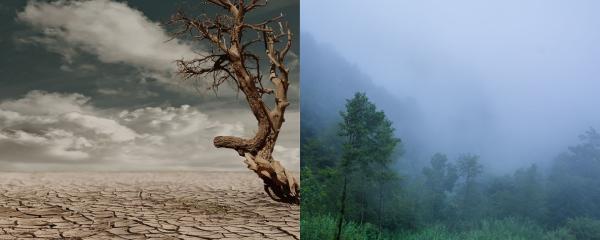
IIT Palakkad study shows how different indices used to predict drought combined with effects fof climate change can lead to different climate predictions for the future

IIT Palakkad study shows how different indices used to predict drought combined with effects fof climate change can lead to different climate predictions for the future
The process of voting is the cornerstone of any democratic process. Be it selecting the leader of a nation or just deciding the laws that govern a nation, a democratic process allows the different participants and stakeholders of the election to have a uniform chance of having their choice win. The process of voting, sometime called the electoral system, can itself be carried out in many ways, sometimes depending on the outcome. A Plurality voting system selects the candidate with the highest number of votes as the winner.
Invasive plants pose a major threat to the native vegetation of an ecosystem, resulting in severe competition for resources and in some cases, complete replacement of native plants by alien plants. Lantana camara is a well-known alien plant in India that has spread like wildfire and needs better strategies to manage this invasion. Since seed dispersal plays a major role in the spread of this shrub, a new study now attempts to understand how this plant succeeds in attracting various fruit eating birds that act as seed dispersers. By understanding how Lantana attracts these birds, better strategies to manage the weed could be developed, say the researchers.
The Earth is a planet we share with a billion of other living animals and plants. Often, we encounter them everyday, use them as food, shelter or clothes, and interact with them as pets or pests. A new term of such interactions, at times, is called ‘conflicts’ where sharing the area we live with wild animals becomes a bane. These animals are often dangerous, causing widespread damage to crops, livestock and lives. How do we prevent this? What can people do to minimise such conflicts? A study now attempts to look at ways of addressing human-animal conflicts in the fringes of the forests in India.
Pursuing research is one of the aspirations of many young minds stepping out of their college. Unfortunately, for many, this aspiration remains largely a dream as costs of higher education are increasing day by day. But what makes higher education so expensive? In such scenarios, should students bear the cost of research? If not, then who should bear them and why? How can different beneficiaries of university research work to help students come out of the burden of education costs and serve society at large? In a conversation with the Research Matters team, the winner of 2011 Nobel Prize in Physics, and the current Vice Chancellor of the Australian National University, Prof. Brian Schmidt, shares his views on the topic of research funding.
Social Capital is the various networks a person can form throughout his life time, with his relatives, friends, co-workers etc, which could become economically valuable. This could be someone from your network offering you a job or a loan or just an edge in a job interview, higher the number of people in your network, higher is the chance of you getting help from one of them. Now, researchers from the University of Iowa and University of British Columbia have looked at the effects of social capital on child nutrition in India.
Indian Institute of Science (IISc) is regarded as the premier research institution in the country and a place where most of the cutting edge research happens. But have you wondered how the institution got to where it is today? Dr. Surja Datta, a senior lecturer at Oxford Brookes Business School, tries to answer this question through the lens of history.
The problem of waste management is ubiquitous. With growing cities and exploding populations, the amount of waste that today’s cities generate is at unprecedented levels. Since most of urban waste ends up in open landfills, there is a need to relook and contemplate on better, greener ways of handling waste. In a new study, researchers explore alternatives to disposing domestic waste and utilizing their by-products. By doing so, we could also help reduce greenhouse gas emissions and help keep the Earth green, the researchers claim
Higher education in India has been a long debated issue. With the cost of education escalating by the day and many students opting for such courses, the need for funds and means to raise them has become a social issue. A recent study has now uncovered new trends in funding higher education in private institutions and has highlighted the phenomenon of philanthrocapitalism in higher education followed by some niche institutes. This, along with factors like neoliberalism and partnership between government and businesses herald a new wave in funding higher education in India, says the study.
What is the price of development? It is a tricky question to answer, especially for a country that is growing at its fastest pace with ambitious goals. But who actually pays this price and how? A recent study has tried to answer this touchy question in the context of small-scale hydropower projects that are increasing their presence in one of the ecologically sensitive area - the Western Ghats and points out how local communities are losing this one-sided game.
Corruption and bribe is a social evil in our society and needs to be weeded out to achieve progress. Though giving and taking bribe are illegal, instances of both are rampant. What can be done to address this? A new study by researchers at the Indian Institute of Science Education and Research may provide some clues towards this. Using game theory, they have shown how legalizing the act of giving bribe can help victims to blow the whistle on corrupt officers and thus, help reduce corruption.